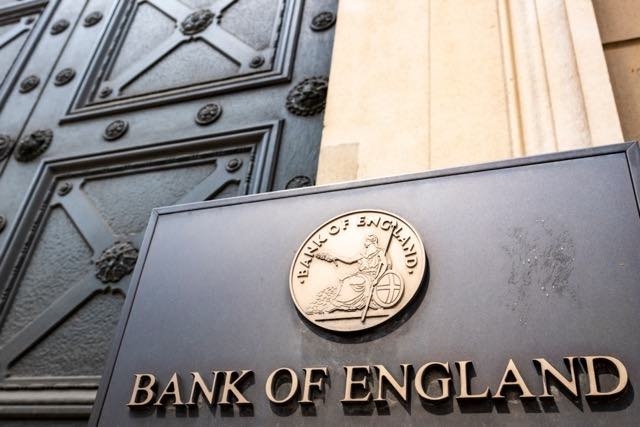The Bank of England today increased its base rate by 25 basis points to 5.25%, the highest level seen in 15 years.
The move follows last month’s shock increase of 50 basis points to 5%, which was twice the increase expected.
The rise is seen as part of the Bank of England's increasingly challenging battle to curb inflation, still running at an historically high level of 7.9%.
The latest rise is the 14th in a row, with the rate climbing steadily over the past 18 months since December 2021 when it was 0.1%.
The Bank's Monetary Policy Committee said that its inflation target would remain at 2% and it would not rule out further rises to try to force down inflation if necessary.
Core goods CPI inflation is expected to decline later this year, supported by developments in cost and price indicators earlier in the supply chain.
The next Bank of England rate decision will be on 21 September.
Alexandra Loydon, director of partner engagement and consultancy at St. James's Place, said: "There are certainly signs that this is starting to hit home for many people, with higher interest rates putting people off spending but also not leaving them with sufficient spare resources to save instead, not least as the cost of living continues to rise. The aim of increasing interest rates is to reduce demand for goods and services and push prices down. However, if there is too much widespread pressure on people and businesses, and consumer and commercial borrowers, it could tip the very fine balance and edge the economy into recession, without significantly easing the cost-of-living crisis.
"Evidence that house prices are starting to fall in many parts of the country could well be a sign that more expensive mortgages due to higher interest rates is having an impact on house purchases, as well as for those with existing mortgages. Anyone on a tracker, standard variable rate (SVR) or variable mortgage will be impacted immediately in an environment where mortgage rates are already the highest seen for many years.
Sarah Pennells, consumer finance specialist at Royal London said: "Given the recent news of lower inflation hard-pressed mortgage holders will be disappointed that the Bank of England didn’t leave the base rate untouched. With the speed at which interest rates had been rising, the higher repayment amounts, for some, will be unaffordable or a huge stretch on their finances."
Royal London’s cost of living research conducted earlier this year found that 30% of UK consumers were already moving into their overdraft or needing to borrow funds before the end of the month to make ends meet.
Rosie Hooper, Chartered Financial Planner at Quilter, had a more positive take on the announcement from the Bank of England.
She said: "For those accumulating wealth, this hike might translate into improved yields on savings accounts, as banks and building societies recalibrate their interest rates however so far not all financial institutions have been quick to move. Therefore, it's crucial to survey the market for the highest rates as not all banks accelerate their rate increments at the same pace. Additionally, other forms of savings products such bonds, ISAs or investments should be taken into account.
"The increase in interest rates may benefit annuity rates, as they have a direct connection to government bond yields. Higher interest rates typically result in elevated bond yields, which consequently improve annuity rates. This suggests that retirees on the brink of acquiring an annuity could enjoy a superior income throughout their retirement phase. Those nearing their retirement should vigilantly track interest rates and bond yields, and seek financial advice to help plot the optimal retirement course."

